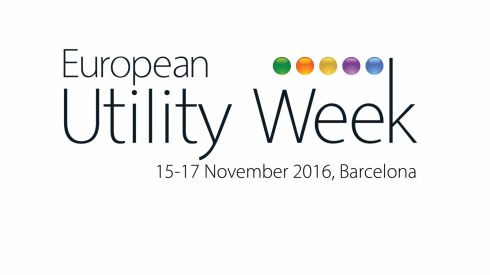
The main European summit for Utilities dedicated to Smart energy has just finished. It helped to take the pulse of the industry and see what facade it offers today to its customers.
Because, more and more, this is, for the participating vendors, a pure exercise of communication.
As every year, myths are created, others disappear; these myths are the concepts to which it is absolutely necessary to refer to be in fashion, to appear at the forefront of innovation. They were my first focus.
This year, it was very rare to find booths or presentations that do not mention prosumers, IoT, Data Analytics, Cloud as a solid reference that should guarantee the attractiveness of both offers and speeches. The Smart Cities’ myth seems to be running out of steam. Is it because the market has not started as fast as hoped? The Smart Cities banner, however, suggests that providers have a global view of what is at stake: for example, Smart City’s offer is replacing Smart Lighting offer, which is probably too restrictive and down-to-earth.
The augmented reality and the blockchain try to emerge as candidates for the succession of federating myths.
Beyond the myths, the industry seems to confirm it is back on its fundamentals. On the booths, many companies do not hide their disappointment regarding the “slow” evolution of the market; some of them no longer want to participate in demonstrators but want “business”. They seem to ignore the main characteristics of the utilities’ business: if it can be judged that some took time to become aware of the tsunami that was going to overwhelm them, the importance of this tsunami requires a profound change that can only be managed over a long period of time. This time scale does not correspond to the requirement of immediacy imposed by certain companies.
In terms of application domains, metering always takes a large part of the exhibitors: the arrival of the Chinese manufacturers is real and reflects as much the development of their industry, their desire to impose progressively on the export markets as the progressive commoditization of the meters. Energy storage was buzzing last year , it was much less visible this year. Data management remain reserved for large IT companies and a few specialists. The issue of data security is carefully addressed. Communication technologies retain an important place, but a non-specialist has difficulty comparing offers and understanding how each presented technology can fit into a global multi-technologies communication network. Microgrids, a major concern, are addressed only by the major electrical manufacturers. There is also a timid emergence of hardware solutions aimed at integrating renewables into networks with an over-representation of the North American continent on these offerings.
Except for metering solutions, references given by companies are often demonstrators or small-scale pilot projects that do not make it possible to highlight the difficulties associated with deployments and the related solutions. They are not very reassuring.
The start-ups providing energy efficiency software and solutions, so numerous a few years ago, become rare and try to find their salvation in the emerging use cases, especially that of self-consumption.
All the start-ups gave me speeches selling very attractive performances or solutions. But often, a few questions were enough to reveal the largely exaggerated nature of the promises. Did the wind of innovation they were blowing disappear? Are they not already suffering from the consequences of their non-respected promises, of an excess of hope created a few years ago in the context of over-mediated projects and whose poor results have, therefore, a very wide scope?
The withdrawal of the industry on its fundamentals is not consistent with the evolution initiated by some energy companies and utilities. The booth of Engie seemed to me to be the most representative of this evolution, the absence of ABB illustrating the low profile adopted by the industry.
Would not we find here a first explanation to an activity surprisingly reduced on the third day of EUW 2016?
Would not utilities be gradually tired of the often unproductive myths created by the industry, would they not wait for more concrete and solid answers to their new needs?



Leave a Reply